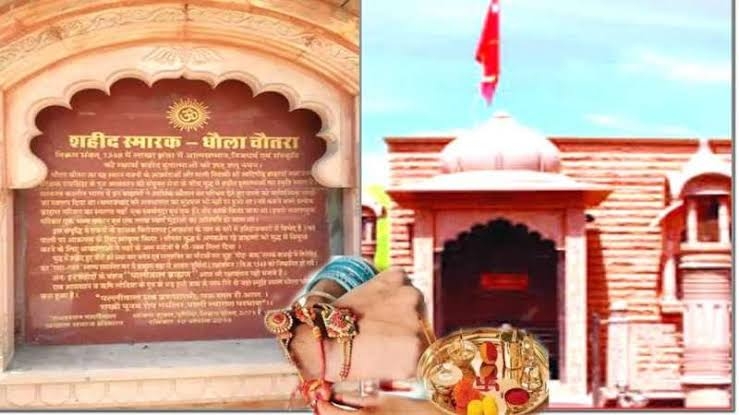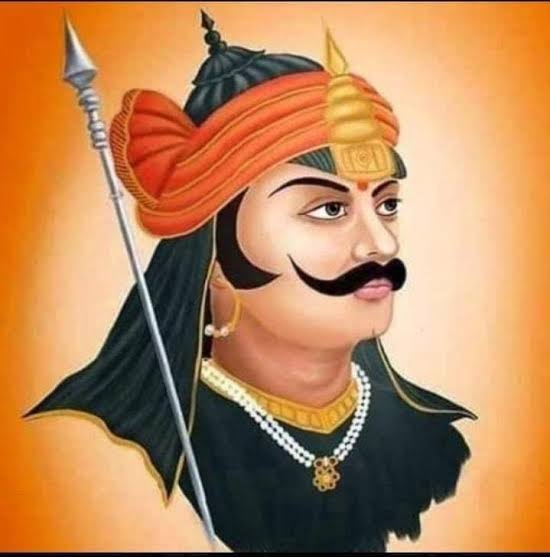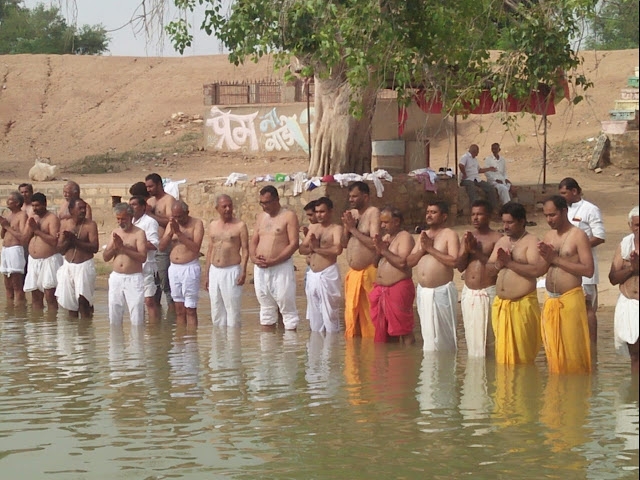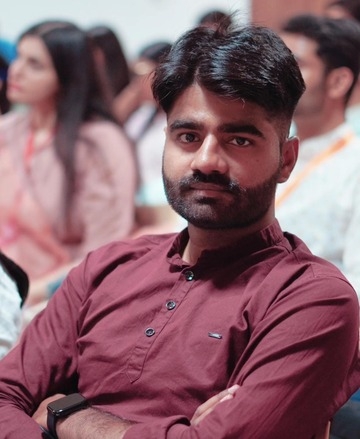Why the Paliwal's Brahmin and Sisodiya's Are not celebrating Rakshabandhan

While the whole world is celebrating Raksha Bandhan, there are Hindu castes like Sisodia and Paliwal who do not celebrate this festival. Lakhs of Paliwal Brahmins spread across the country and the world do not celebrate Raksha Bandhan. Instead, they celebrate it as a day of sorrow.
About 700 years ago, on the full moon day of Shravan month, thousands of Paliwal Brahmin women, children and men were killed in an attack by a Islamic invader.
On Raksha Bandhan, Paliwals remember their ancestors and perform tarpan and organize religious programs. At the same time, families of Sisodia clan do not celebrate Raksha Bandhan in mourning of the attack on Maharana Pratap.
Sisodia families had to face bloodshed
King Maharana Pratap of the Sisodia dynasty ruled Mewar. On the day of Rakshabandhan, Maharana Pratap had vowed not to take up arms. He was making sweets at home on the festival of Rakshabandhan. Sisters were tying Rakhi to their brothers.
Meanwhile, someone informed the Islamic invaders about the Rajputs not taking up arms. The Islamic army attacked at on of the fort of Mewar Kingdom. Due to the compulsion of not taking up arms, Maharana Pratap had to flee from his fort. During this time, he stayed in the Aravalli hills for a long time.

The Islamic army killed many Rajputs. Many Rajput women had to commit Jauhar. There was a lot of bloodshed. Saddened by this bloodshed, the descendants of Maharana Pratap vowed that they would never celebrate Rakshabandhan again. Till date, no brother in the Sisodia dynasty gets a Rakhi tied by his sister.
Paliwal BrahminsFaced the terror of Mughals on Shravan Sudi Purnima
The story of Paliwal Brahmins regarding Raksha Bandhan is also similar. Businessman and senior BJP leader from Agra, Vijay Dutt Paliwal told that around 1348 Shravan Sudi Purnima, Paliwal Brahmins lived in Pali (Pallavi) district near Jodhpur.
On the day of Purnima, the Brahmin community was celebrating the festival of Raksha Bandhan with great pomp, but during this time the Islamic invader Jalaluddin Khilji attacked. After this attack, a fierce war took place. About one lakh Brahmins attained martyrdom in this war.
When the Mughals saw defeat in the war, they slaughtered a cow and threw it in the only drinking water source in the district, Lodiya pond. Due to which people could not get drinking water. Many people died.
Eight Maunds (1 Maunds = 40 kg) of Yagyopaveet were removed from the bodies of the men
It is said that when the Yajnopaveet was removed from the bodies of the dead Brahmin warriors, its weight was about 8 maunds. The bangles in the hands of the women who committed Jauhar weighed 84 maunds.
As a mark of respect, the surviving Brahmins collected the sacred threads and bangles of the martyred men and women at one place and built a platform which was named Dhaula Kuan.
After this blood-soaked day, the Brahmins stopped celebrating the festival of Rakshabandhan. Most of the Paliwal Brahmins left Pali district and settled in Jaisalmer, Jodhpur and other districts.
They remember their ancestors and perform tarpan
All the Paliwal Brahmins decided that this day has brought disappointment and sorrow for them so they will abandon this festival forever. On this day (Rakshabandhan) they remember their ancestors and perform tarpan.
Article by
Aalekh Sharma
Younginker
Advocate
Gwalior, Madhya Pradesh